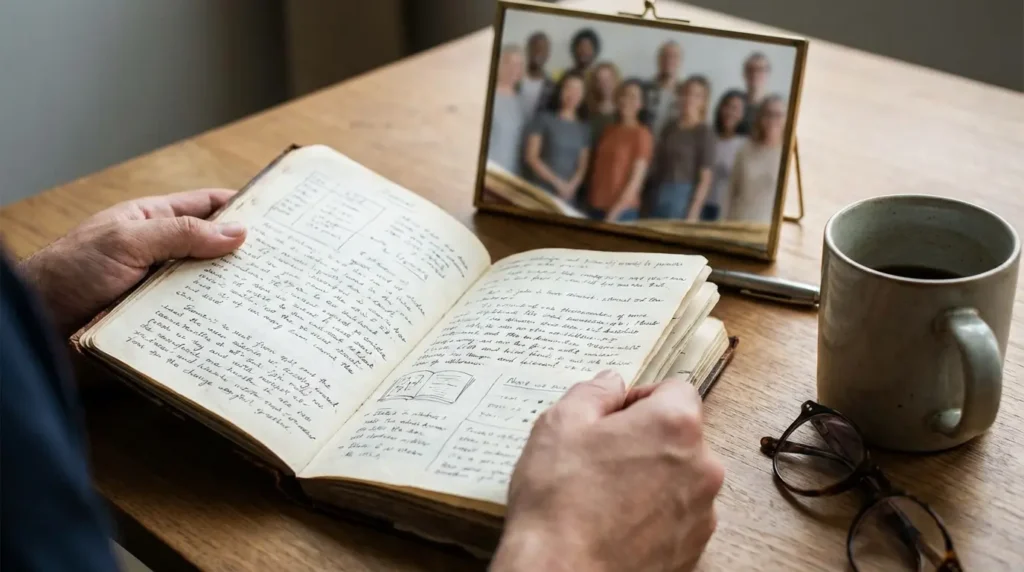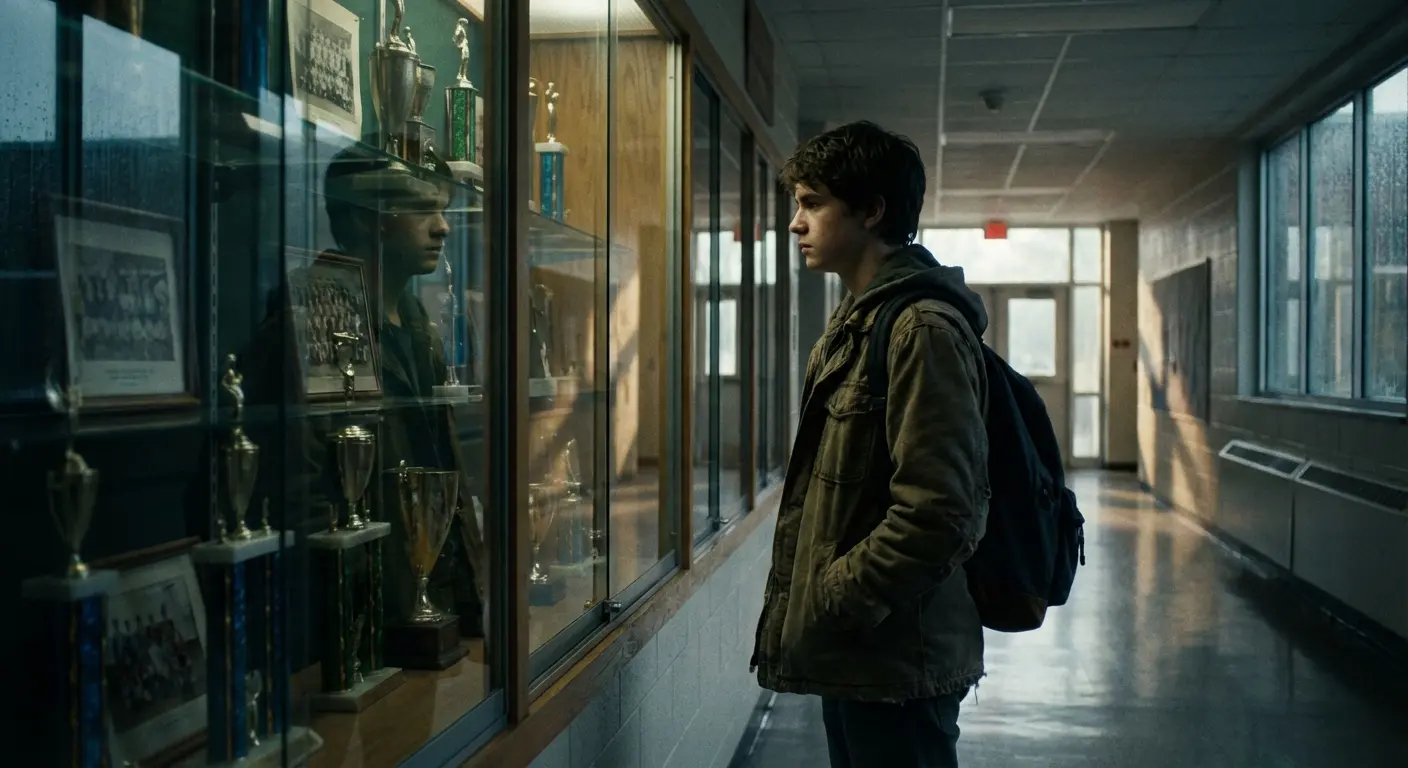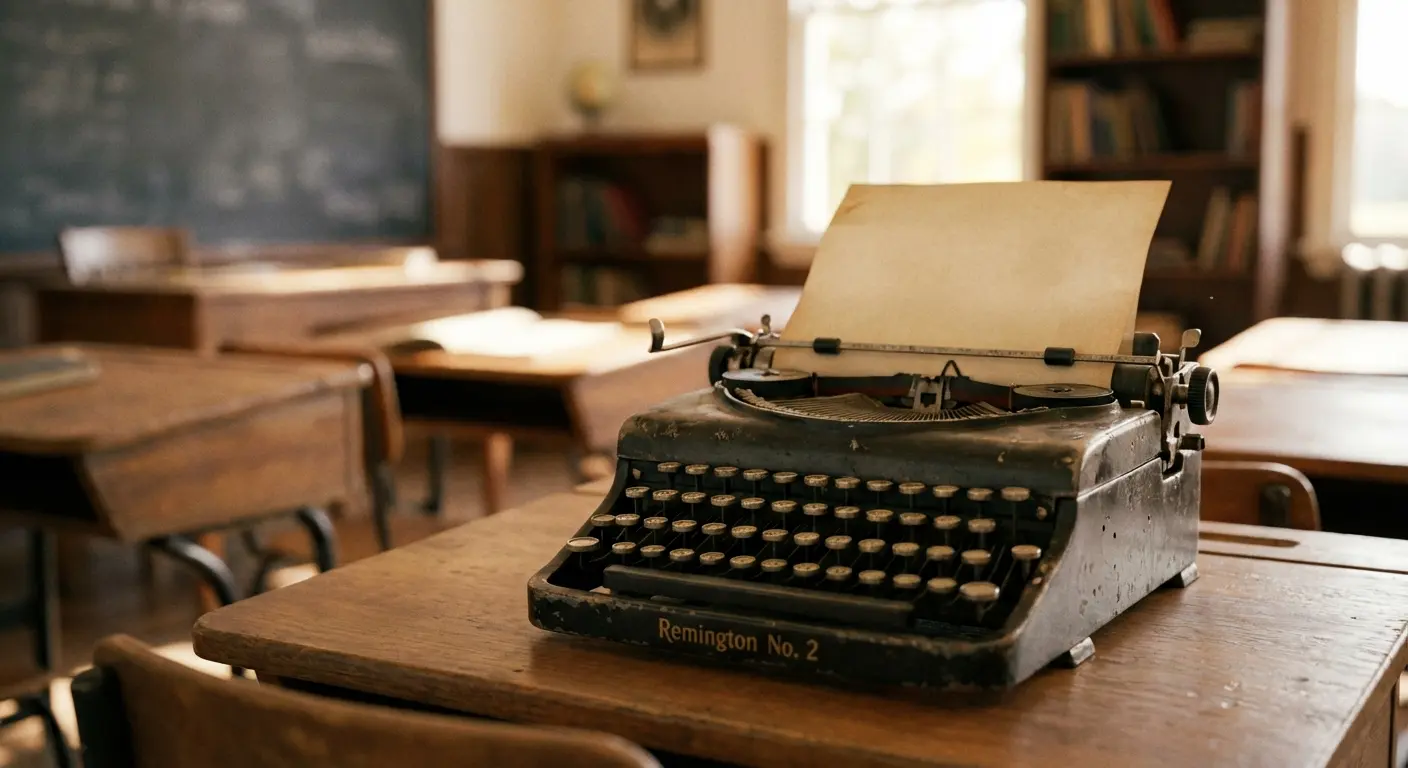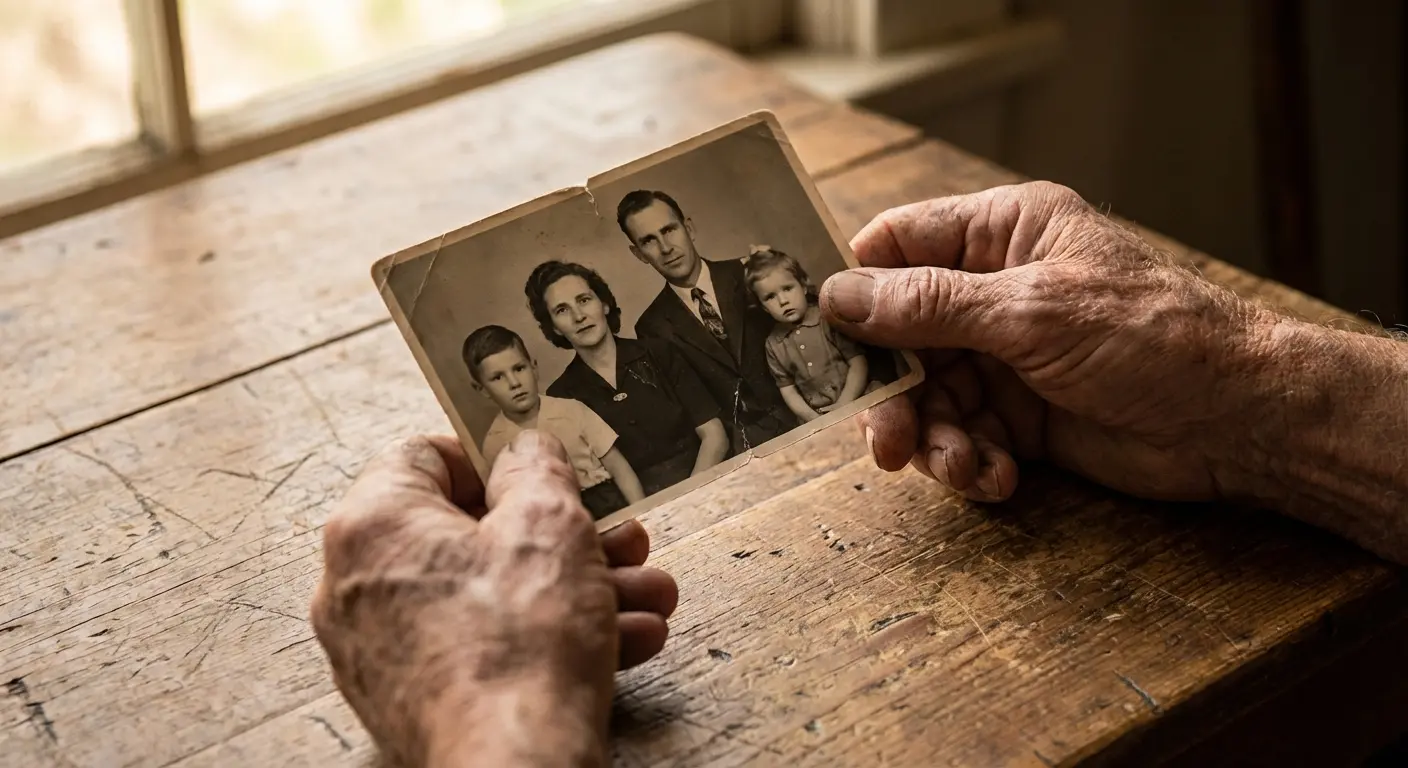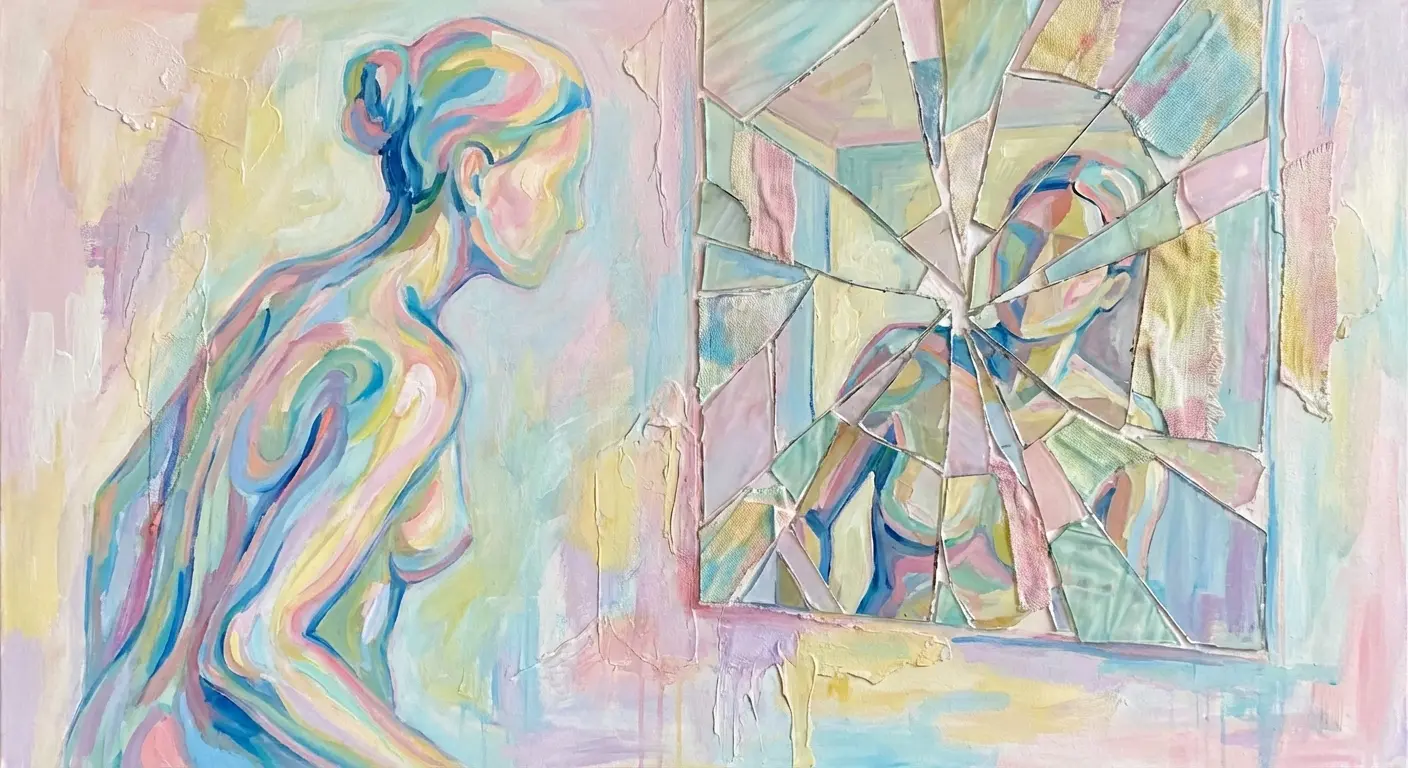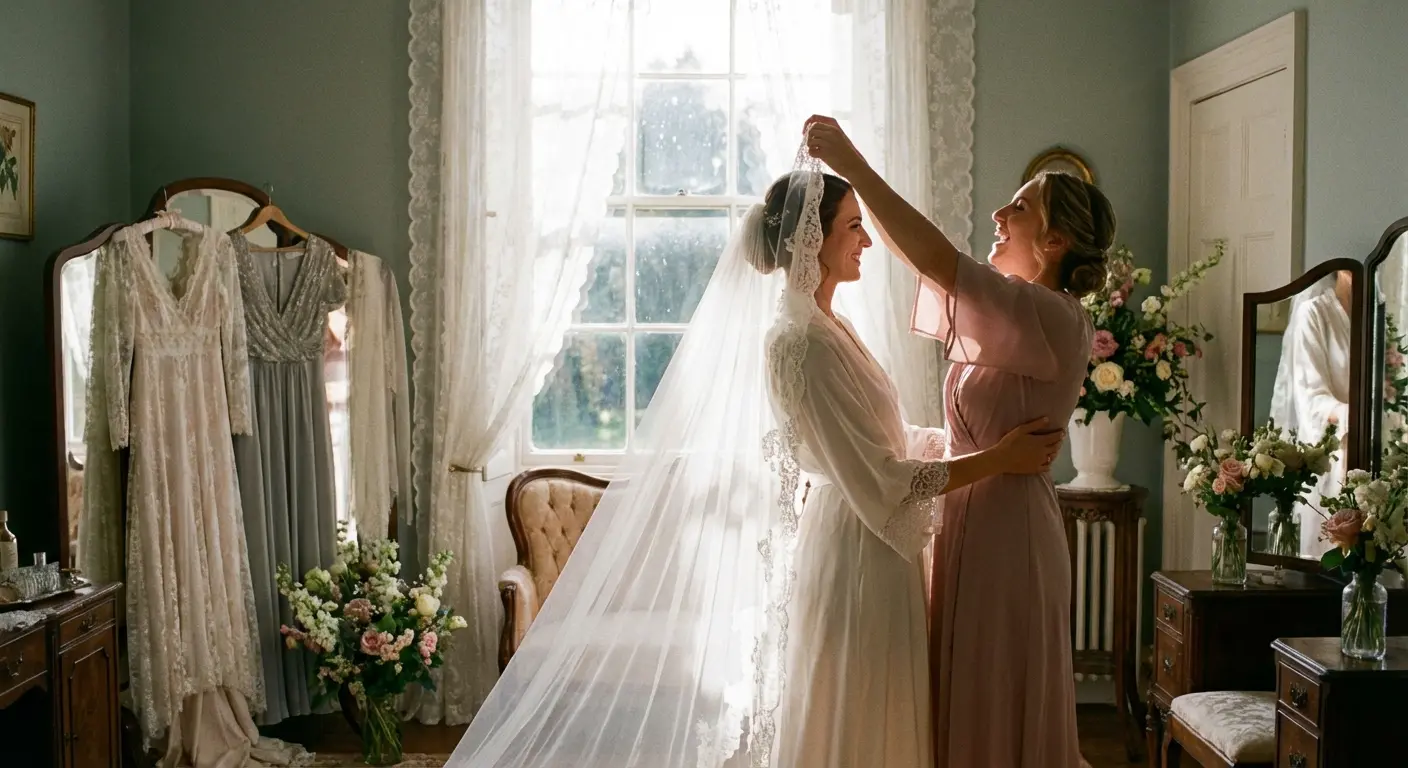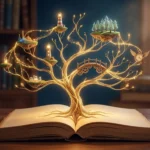Hi, Friend! Jen Glantz here. I’m a bestselling author, the first ever bridesmaid for hire and have been hired by hundreds of brides all over the world. Let’s talk about identity poem examples.
Adolescence is that weird, messy time when you start asking the big questions: Who am I? Where do I fit? Who do I actually want to be? I still vividly remember standing in a high school hallway at sixteen, feeling like I was entirely defined by what other people thought of me, rather than who I knew I was inside.
But here’s the thing: that struggle to define yourself doesn’t magically stop when you toss your graduation cap. It evolves. You spend your whole life searching for the right words to explain your specific existence.
Feeling overwhelmed by wedding pressure? Talk it out with our Free 24/7 Wedding Hotline.
Quick Resources:
-
Free 24/7 Wedding Hotline – Talk to a real wedding expert anytime (Free)
-
All Wedding Tools – Explore the full planning toolkit
I pulled together this list of identity poem examples to help give you that language. Whether you’re grappling with heritage, body image, mental health, or just the sheer exhaustion of trying to be yourself, there is something here for you.
TL;DR
In a rush? Here is the gist of what matters in these poems:
-
It’s messy: The best poems admit that identity isn’t one thing; it’s a clash of cultures, expectations, and history.
-
Read the room: Some poems are great for a wedding speech; others are better for reading alone in your room at 2 AM.
-
Mirrors vs. Windows: Look for poems that reflect you (Mirror) and poems that show you a life you’ve never lived (Window).
-
Modern problems: The best contemporary poetry isn’t afraid of the internet, anxiety, or global politics.
-
Power: Real power comes when the poet stops asking for permission and starts claiming their own history.
What to Look for (Beyond the Rhymes)
Picking the right poem isn’t just about finding a pretty rhyme scheme. It’s about the mechanics behind the emotion. Why does one poem make you cry while another leaves you cold? When I put this list together, I looked for three specific things. Use these as a guide to find poetry that offers resilience, not just observation.
The “Mirror” Factor
Identity is never just one thing. It’s race, gender, history, and personal growth all fighting for space in your head. The strongest poems don’t isolate these things; they blend them. We also look for the “Mirror” factor—that moment where you read a line and think, “Oh, someone else feels that too?”
|
Concept |
What it is |
How it feels |
|---|---|---|
|
The Mirror |
A poem that reflects your own culture or struggle back to you. |
Validation: “I’m not crazy; I’m not alone.” |
|
The Window |
A poem that shows you a life unlike your own. |
Empathy: “I finally understand a perspective I haven’t lived.” |
|
The Prism |
A poem that shows identity is fractured and multiple. |
Complexity: “I am many things at once, not just one label.” |
When wedding roles start to blur who you are, get clarity with our Free 24/7 Wedding Hotline.
Readability vs. Deep Dives
You have to know your audience. There’s a big difference between a spoken-word piece that brings the house down at a wedding and a dense, metaphorical text meant for a literature class.
If you need something for a speech, stick to short narrative poem examples. They tell a story, they’re easy to follow, and they keep people awake.
Stressed about what’s expected of you? Call our Free 24/7 Wedding Hotline for calm, unbiased support.
|
Poem Type |
Best Use Case |
Vibe |
|---|---|---|
|
High Accessibility |
Speeches, Toasts, Instagram Captions |
Direct, rhythmic, hits you in the gut immediately. |
|
High Complexity |
Classroom, Book Clubs, Journaling |
Dense, historical, gets better the third time you read it. |
|
Narrative/Story |
Family Gatherings, Eulogies |
Has a clear beginning, middle, and end. |
Does it hold up?
Identity shifts with the times. A great poem needs to feel relevant to the modern human condition—anxiety, digital noise, and all. We focused on voices that reclaim their names and histories rather than letting the world define them.
Poems About Cultural Heritage & Roots
These five poems tackle the tension between where you come from and where you are right now. If you feel like you’re constantly navigating two different worlds, start here.
1. “Theme for English B” by Langston Hughes
Hughes captures that specific isolation of being the only Black student in a white class. He questions whether the page he writes is truly “him” or just a product of the environment he’s forced to navigate. It’s a classic for a reason.
2. “Won’t You Celebrate with Me” by Lucille Clifton
This is a masterclass in survival. Clifton writes about constructing an identity in a world that didn’t want her to make it. She fashioned herself out of nothing, and she invites you to celebrate that act of creation.
3. “Immigrant Blues” by Li-Young Lee
Lee explores the heavy weight of family history and the confusing process of assimilation. It perfectly captures the “Mirror” factor for anyone balancing two cultures—the specific pain of trying to explain a history that feels like it’s slowly fading away.
4. “I Am Joaquín” by Rodolfo Gonzales
This is an epic. It defines Chicano identity by merging Aztec history with modern struggles. Gonzales refuses to let history be erased, stacking centuries of lineage into a single, powerful voice.
5. “Search for My Tongue” by Sujata Bhatt
Have you ever felt like you’re losing your native language? Bhatt describes the physical sensation of the mother tongue “rotting” in her mouth before growing back. It’s a visceral, slightly haunting depiction of cultural resilience.
Poems About Self-Love & Resilience
Sometimes you need an anthem. These are the poems to read when you need to remember your own worth.
You don’t have to carry wedding stress alone—reach out to the Free 24/7 Wedding Hotline.
6. “Still I Rise” by Maya Angelou
You probably know this one, but have you read it lately? It’s pure defiance. It demands to be spoken aloud. It connects deeply with the spirit of powerful “I Am” poems that encourage you to take up space.
Pro Tip: If you read this for an audience, pause after the questions (like “Does my sassiness upset you?”). Make them sit with it before you give them the answer.
7. “Love After Love” by Derek Walcott
This is the ultimate breakup cure. Walcott focuses on the person who is left after the lover leaves: you. He guides you toward loving the “stranger” that is your own self. It’s a reminder that the most important relationship is the one you have when the room is empty.
8. “Wild Geese” by Mary Oliver
Oliver gives you permission to stop trying so hard. She strips identity down to the biological and natural. You don’t have to be “good.” You don’t have to walk on your knees for a hundred miles. You just have to let the soft animal of your body love what it loves.
9. “Invictus” by William Ernest Henley
Written from a hospital bed, this is the definition of stoicism. It’s about maintaining your identity through sheer will. Physical confinement cannot trap the spirit.
10. “Phenomenal Woman” by Maya Angelou
Angelou flips the script on beauty standards. She locates the source of her allure not in her measurements, but in the span of her hips and the stride of her step. It’s confidence, bottled.
Poems About Gender, Sexuality, & The Body
These poems look at the physical vessel we walk around in. They challenge how bodies are “supposed” to look and function.
11. “Homage to My Hips” by Lucille Clifton
Playful, serious, and absolutely essential. The speaker refuses to shrink her physical identity to fit into a size zero world. These hips have never been enslaved, and they go where they want to go.
12. “Someday I’ll Love Ocean Vuong” by Ocean Vuong
Vuong speaks to himself while navigating queer identity, trauma, and survival. It’s introspective and heartbreaking. He treats his own name as something to be cherished, even when the world makes it difficult.
13. “A Litany for Survival” by Audre Lorde
Lorde speaks to those who were “never meant to survive.” She writes from the intersection of being Black, female, and queer, exploring why we must speak despite our fear. Silence won’t protect you.
14. “Barbie Doll” by Marge Piercy
This is a narrative about a girl who destroys herself trying to meet beauty standards. It’s a tragic, brutal reminder of what happens when we let external pressure dismantle who we are inside.
15. “Heavy” by Mary Oliver
Oliver discusses the burden of grief. The poem explores how carrying loss becomes an intrinsic part of who we are. It isn’t something you “get over”; it’s something you integrate.
Poems About Complexity, Mental Health, & The Modern Self
Identity isn’t a straight line. It’s messy. These poems cover anxiety, global responsibility, and the non-linear path of mental health. They are honest poems that don’t shy away from the ugly stuff.
When wedding planning messes with your head, vent safely via the Free 24/7 Wedding Hotline.
16. “The Guest House” by Rumi
Rumi treats being human as a guest house, and your emotions are the visitors. This is vital reading for anyone who fights their own feelings. You learn to welcome the depression, the meanness, and the joy equally.
Try this: Use this poem as a journaling prompt. Give your emotions names (e.g., “The Anxiety Visitor”). Ask them what they are here to teach you instead of trying to kick them out.
17. “Good Bones” by Maggie Smith
This poem went viral for a reason. It reflects the identity of a parent trying to maintain hope while selling a broken world to her children. “The world is at least fifty percent terrible,” she admits, but she still tries to show them the view.
18. “We Lived Happily During the War” by Ilya Kaminsky
This one stings. Kaminsky challenges our moral identity, highlighting how we identify as “good” people while ignoring atrocities happening elsewhere. It forces you to confront your own complicity.
19. “Song of Myself” (Section 1) by Walt Whitman
Whitman argues that his identity contains the universe. He celebrates every atom belonging to him as also belonging to you. It’s about how we are all connected.
20. “To the Notebook Kid” by Eve L. Ewing
This is for the quiet, observant “weird” kid in class. Ewing validates that silence. She elevates the act of observation to a superpower.
Poems About Names, Language, & Belonging
Finally, let’s talk about labels. These poems discuss names, origins, and the choice to belong or stand apart—similar to how people use bio poems to map out their history.
21. “Lost” by David Wagoner
Wagoner suggests identity is found by acknowledging where you are right now. Drawing on Native American teachings, he says: If you are lost, stand still. The forest knows where you are; you just have to let it find you.
22. “Legal Alien” by Pat Mora
Mora explores the exhaustion of being Mexican-American and having to prove your identity to two different cultures constantly. She slides back and forth between English and Spanish, never fully accepted by either side.
23. “Where I’m From” by George Ella Lyon
Lyon lists specific memories and items that make up a life. It’s the quintessential “I Am From” poem. It reminds us that we aren’t just from a city; we are from the smells in our childhood kitchen and the phrases our parents used.
Writing Prompt: Write your own list. Don’t use cities. Use smells, sounds, and objects from your backyard. Map your identity through your senses.
24. “Choosing Your Names” by Raymond Carver
Carver reflects on the history of a family name. How much of our identity is inherited rather than chosen? It questions the weight of carrying a name that belonged to someone else.
25. “Identity” by Julio Noboa Polanco
Polanco contrasts being a beautiful, trapped flower with being a free, ugly weed. It’s a declaration of choosing freedom over social acceptance. He’d rather be unseen and free on a cliffside than admired in a pot.
Reclaiming Your Name Amidst the Wedding Chaos
Okay, this might seem like a sharp left turn, but hear me out: Weddings are basically giant identity crises.
They have a way of flattening complex people into rigid roles. Suddenly, you aren’t “Sarah” anymore; you are “The Bride” or “The Maid of Honor.” Your actual identity takes a backseat to logistics, family drama, and performance management. The pressure to be perfect can strip away who you actually are.
Don’t let a wedding role erase you—get real-time help from the Free 24/7 Wedding Hotline.
That is exactly why Bridesmaid for Hire exists. Jen Glantz founded this service to help you navigate those pressures without losing yourself.
If you are a bride overwhelmed by family drama, we act as that unbiased voice of reason—much like the grounding voice in “Lost”—reminding you that you don’t have to perform perfection. If you are a Maid of Honor feeling the weight of logistics, we shoulder that burden so you can go back to just being a friend. We even take on “fake” identities to blend into the wedding party, allowing you to maintain yours.
|
Wedding Role |
The Identity Trap |
How We Help You Reclaim Self |
|---|---|---|
|
The Bride |
“I have to be the perfect hostess/model.” |
We handle the crisis management so you can focus on your partner. |
|
Maid of Honor |
“I am an event planner, not a friend.” |
We execute the logistics; you provide the emotional support. |
|
The Mother |
“This event defines my parenting success.” |
We act as a buffer for family tension, preserving your relationship. |
Don’t let a wedding title define you. Hire a professional bridesmaid today.
Final Thoughts
Reading poetry about identity highlights that universal struggle between who we are internally and the roles society expects us to play. Whether you connect with the resilience of Maya Angelou or the independence of Julio Noboa Polanco, these texts offer a way to articulate your experience. Use these poems to validate your feelings, challenge your perspectives, and—most importantly—reclaim your agency.
1-800-BRIDESMAID
The Newlywed
Card Game
something extra to love
Read the weekly newsletter from Bridesmaid for Hire, 1-800-Bridesmaid, to hear about real stories, from strangers, who need advice on love, life, friendship, and so much more.
Looking for the perfect wedding gift for someone you adore? Grab The Newlywed Card Game. It's a fun and interactive game they can play on their honeymoon or future date nights.
